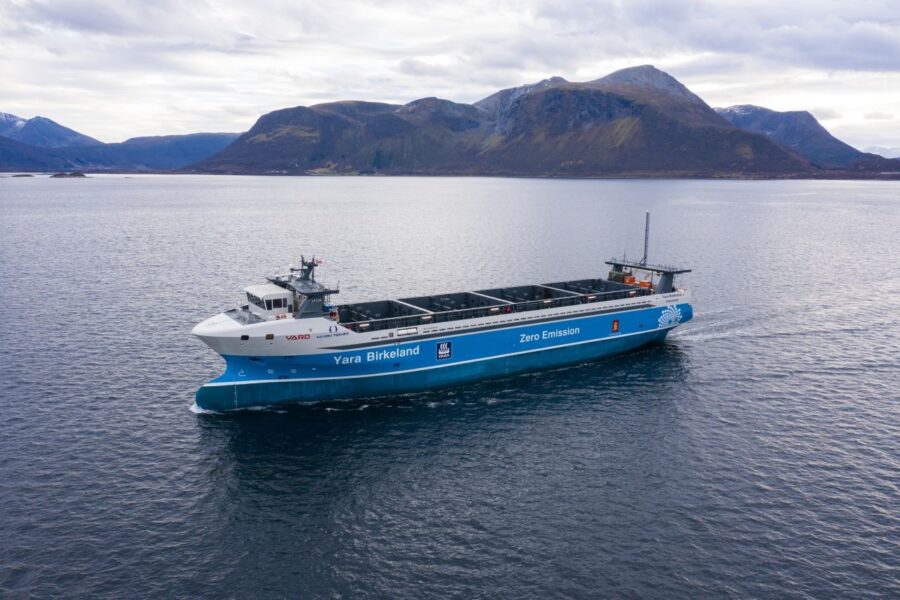
Electric cars are becoming common to see in Europe these days, but did you know that electric shipping is on the horizon? And like cars these will also move into the realms of autonomy. And this is much close than you think!
At the end of last year, shipbuilder VARD delivered Yara Birkeland, a zero-emissions container vessel, to Yara International, a Norwegian fertiliser company. Its maiden voyage was manned, but this 80m-long, 15m-wide container ship is expected to gradually shift from manned to fully autonomous operations by 2022.
The ship has a been specifically designed for a particular purpose. It will transport cargo between Yara’s fertiliser plant in Porsgrunn to the Brevik and Larvik ports in Norway, which is expected to take approximately 40,000 truck journeys off the road annually and reduce nitrogen oxide (NOx) and carbon dioxide (CO₂) emissions.
This is interesting because this is a short route, so rather than having to imagine designing a ship that could sail half way round the world, the builders have designed something that can make short trips by sea, similar to the short-range electric delivery vehicles that we see making home deliveries from supermarkets in Europe.
And this is reflected in its surprisingly small power-pack. This little beast has a 7MWH battery capacity (about 100 large electric cars) and promises to be entirely emission free, which is important if you know that shipping emits over 1 billion tonnes a year of CO2 and is growing — and already produces more than all but the top five individual country emitters.
Although the project is still very much a work in progress, its an exciting prospect as currently 90% of the world’s goods are moved by sea and with shipping generating between 2% and 3% of all global emisions this must be a welcome move.
Before you go, take a look at the other posts on this website about electric transport.
3 thoughts on “The Future of Electric Shipping”